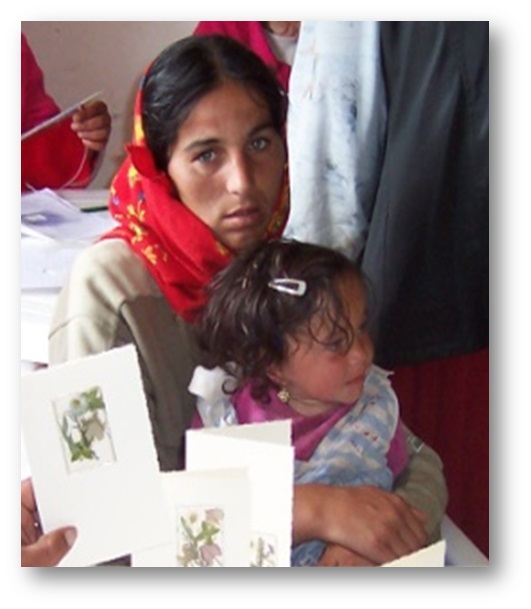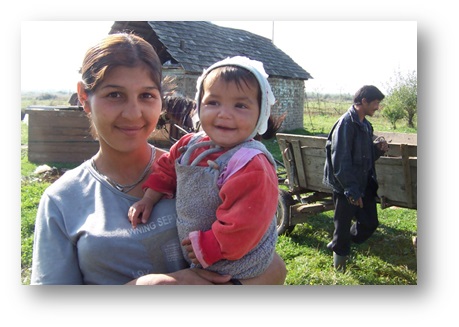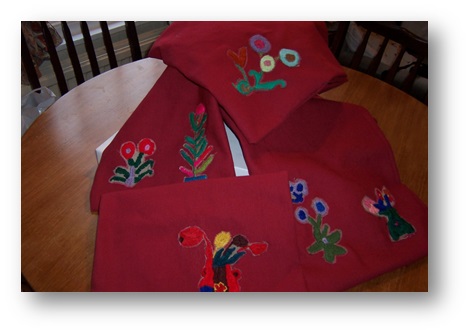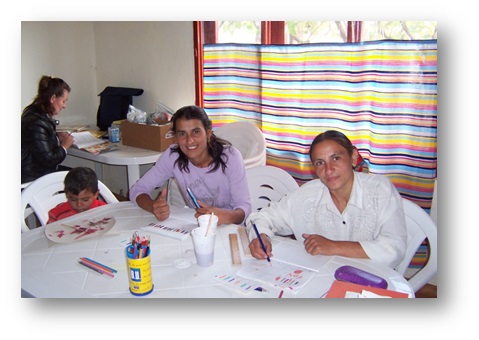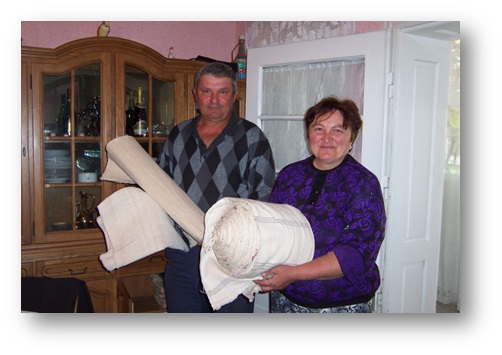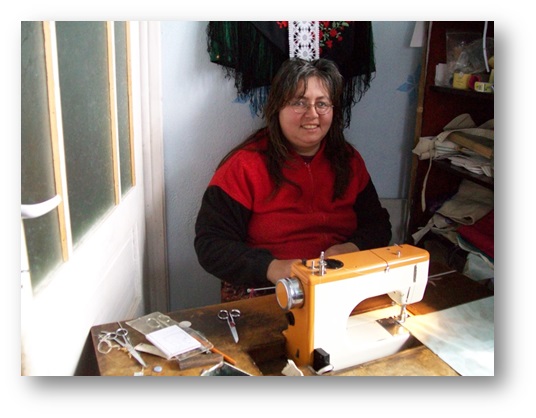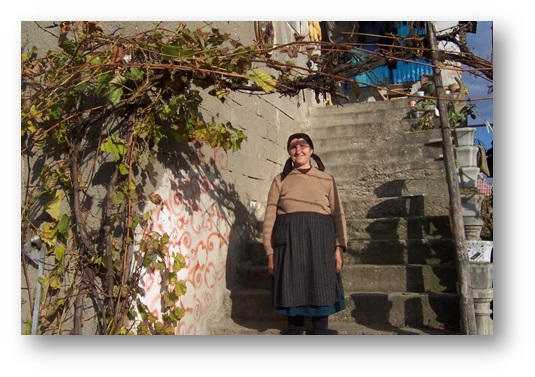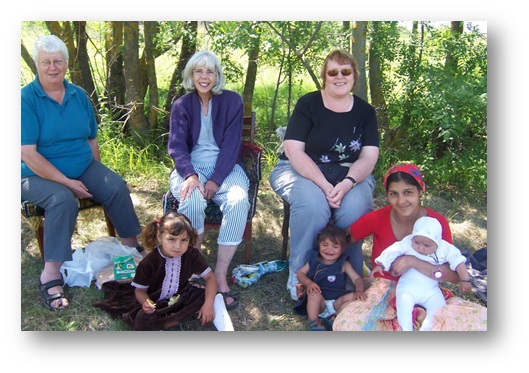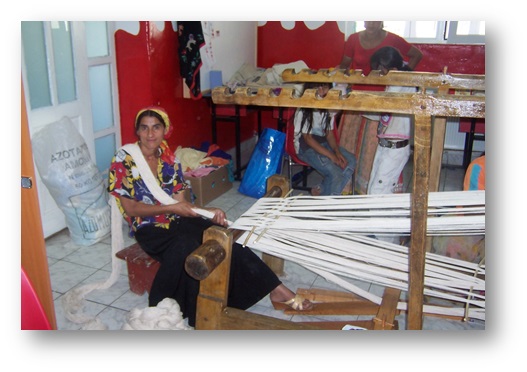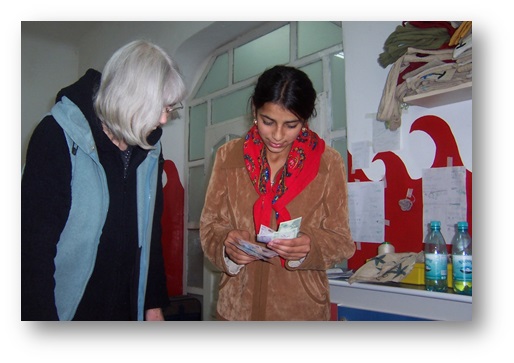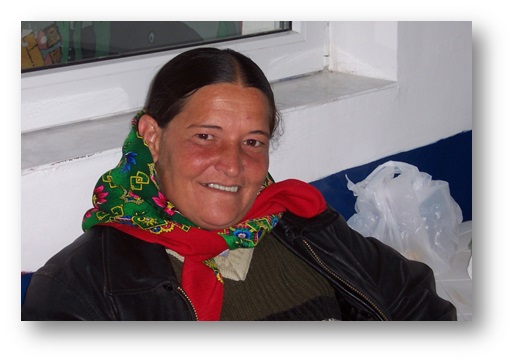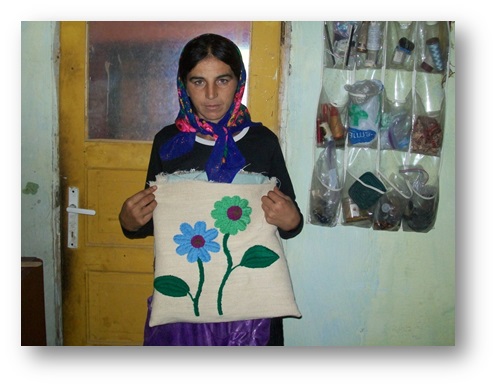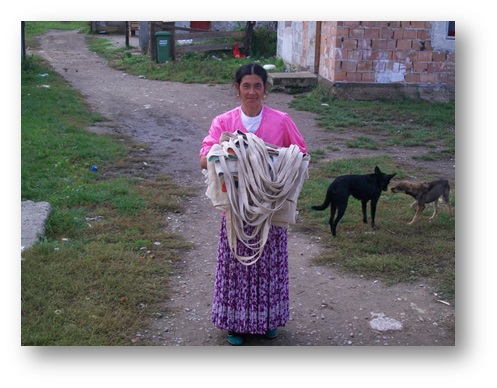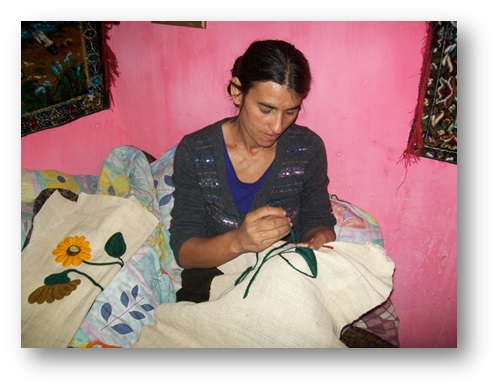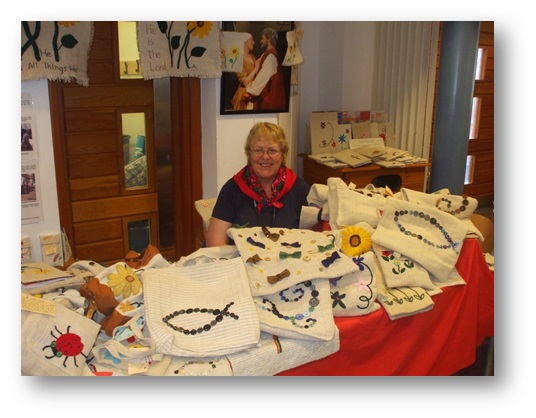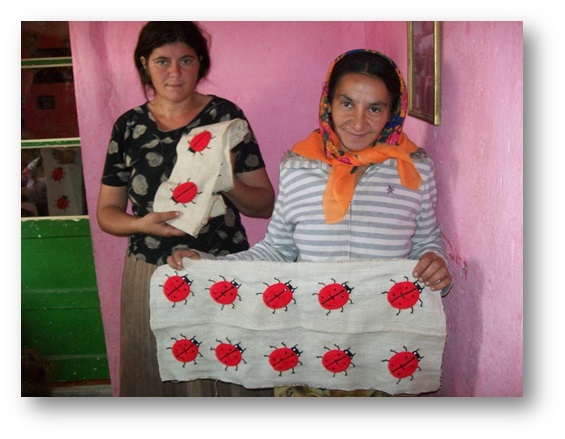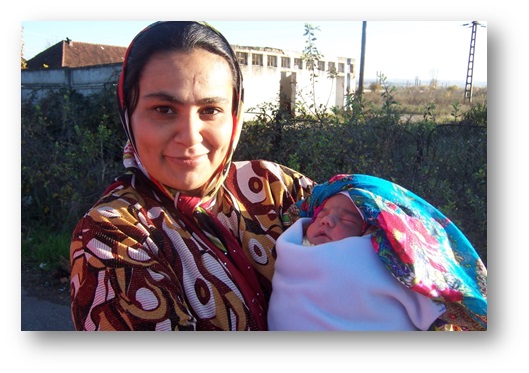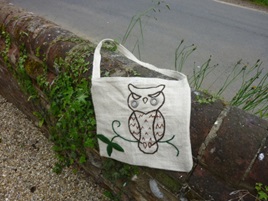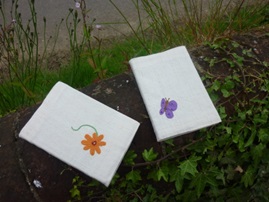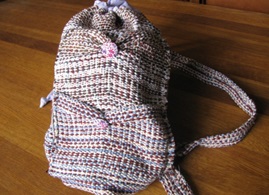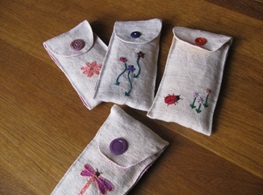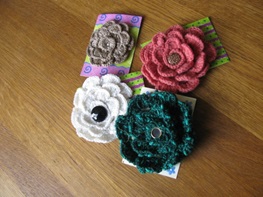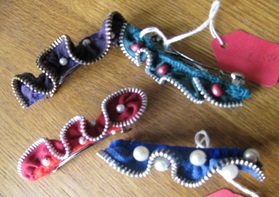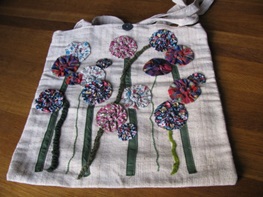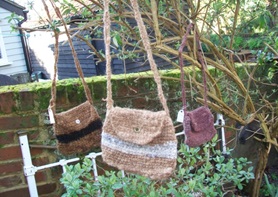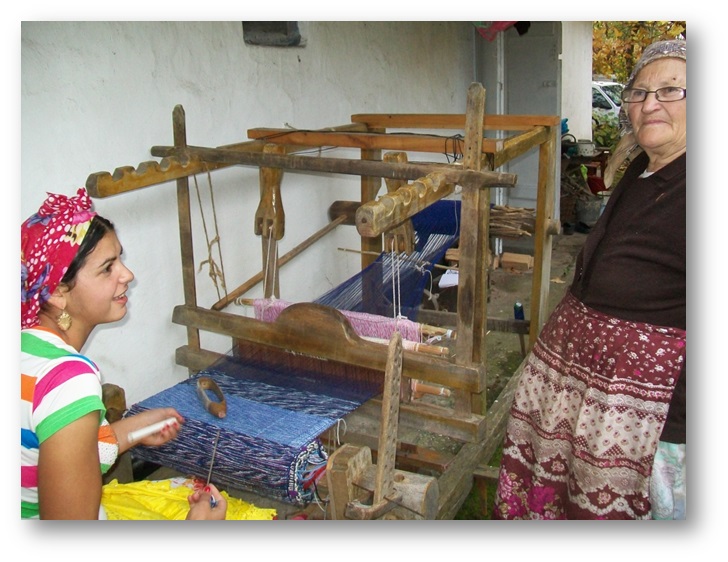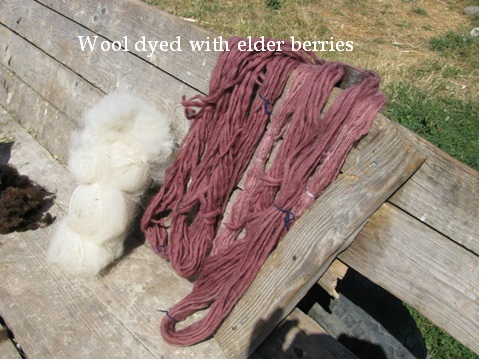A picture history of the Flowers of Tileagd
"I came out to Romania with the Smiles Foundation arriving in January 2005.
Spring 2005 and I moved into Tileagd and started visiting the Roma community. “We can do nothing.” This was the start of the Craft Project, their lack of hope and my determination to refute this lie. I wanted these women to be able to say “I can... with Jesus’ love and His help.”
Spring 2005 and I moved into Tileagd and started visiting the Roma community. “We can do nothing.” This was the start of the Craft Project, their lack of hope and my determination to refute this lie. I wanted these women to be able to say “I can... with Jesus’ love and His help.”
Cornelia had come from outside our village and her mother had taught her to embroider. She taught Livia, Aurica, Malina and me and we taught others in the village. We began to embroider flowers.
Early on I left for England and when I returned I was presented with dozens of torn and rather dirty bits of cloth with poorly embroidered flowers and pictures! We had to try and make some of them into something! So we cut them out and put them on small cushions!
I began literacy classes in the village. Small groups learnt colours, how to count and write to 10, they wrote their names and began to learn letters. We made an alphabet book with the Ciuari language in first position followed by Romanian. This was all to do with self esteem as well as being proud to be Rom. How could they begin to really appreciate that Jesus died for them if they thought they had no worth?
We began to use hemp and linen for our embroidery bought from local Romanian villagers, stored away in their cupboards, much of it was the work of old people who have died. This material was grown in Communist cooperatives or on their own homesteads and woven on traditional hand looms. All of this material has a history of its own. Bags, cushion covers, spec cases and anything we could think of came through our hands and then onto England to be sold.
Violeta joined the group and took over responsibility for all the sewing machine work – linings and straps for a growing variety of bags.
Violeta joined the group and took over responsibility for all the sewing machine work – linings and straps for a growing variety of bags.
Sheila Smith gave us her mother’s old sewing machine when Violeta’s broke beyond repair. It’s a miracle machine. It has been used 8 hours a day for 5 years and is still going. It finally had to be replaced in 2012.
Violeta’s mum sews up the cushion covers and we added book covers to our repertoire.
Carole Rainbird and Pat James have visited Tileagd twice a year from the beginning to take work - shops, and make friends. We arrived at this picnic place in the woods with Tarzan and family on their horse and cart, with our chairs sat on top like thrones.
This is our handloom. It has come from a friend’s family. We need one of the older women to warp- up the loom each time but Mona or Florica or Florentina can weave material from donated wool and I can usually mend any errors or breaks in the warp. These are traditional skills in danger of being lost.
Malina is a very special young Roma girl. She is now living away from our village, married with two children but when she visits she is able to earn a little money making some woven bags. Even a little money means something. We pay the women each Friday for the work they have produced that week.
This is Aurica Anton who is unable to have children, quite a stigma in our community. She is the one who crochets hats and little flowers and it is important to support her. Other women need work because they have too many children!
Marioara has sewn the lining and straps of this bag.
Aurica Dani has sewn on the closure buttons.
This is the painstaking and beautiful work of Aurica Stenesco.
Here, Carole is selling at Leading Edge in 2010. Carole, Pat and others also sell at Fairs, Markets, Fair Trade shops, Churches, Women’s Groups and wherever an opportunity presents itself. We need bigger and different outlets for our work.
Amnesty International made 2 orders for small ladybird, sunflower and dahlia bags. They have also requested bookmark cards using their logo.
Viorica had a dream. “Why don‘t you take a little money from each of our salaries each Friday and at the end of the month give the money to someone more needy than we are?” We were able to do this for a while.
Here are some of the craft items produced by the Flowers of Tileagd.
We have also improved our skills on a hand loom that now lives against my house. We produce a material using donated wool. We make rucksacks and other bags.
By 2012 it was becoming more and more difficult to source our hemp material. No hemp is being grown in Romania, and even if the government ruling changed it is unlikely to result in more of the traditional material we have loved so much. The old weavers are dying, skills lost and the looms often used as firewood.
So, in 2013, we made a big decision. We have started to work with wool. We wash the fleeces in the river, card the wool, hand spin the wool and finally use it to make bags, slippers and rugs. We have a rug loom and 2 spinning wheels. Some wool is in beautiful shades of black, brown and grey. The majority is cream and we dye it with natural dyes like walnut, plum, elderberry, woad, weld, cow parsley, dock, roots...
So, in 2013, we made a big decision. We have started to work with wool. We wash the fleeces in the river, card the wool, hand spin the wool and finally use it to make bags, slippers and rugs. We have a rug loom and 2 spinning wheels. Some wool is in beautiful shades of black, brown and grey. The majority is cream and we dye it with natural dyes like walnut, plum, elderberry, woad, weld, cow parsley, dock, roots...
“There is no easy road to Freedom.” (Nelson Mandela)
Contact Carole Rainbird at 01787 460265 or Email her at [email protected] if you would like to see these bags and other designs or have any questions. Margaret Biddulph can be contacted at [email protected]
